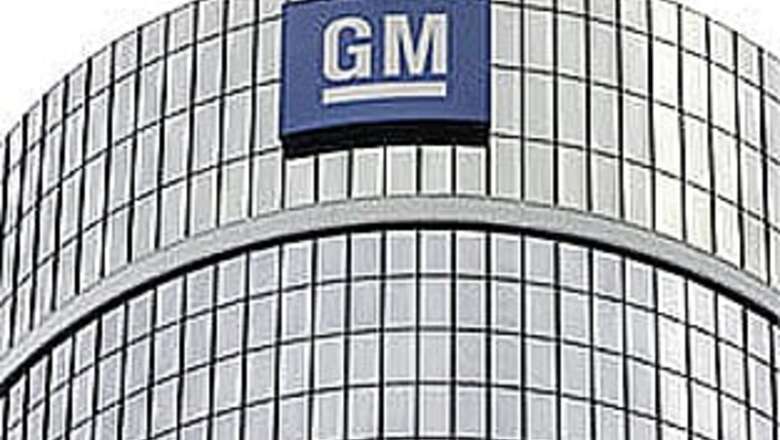
views
Berlin/Zurich: Giant US carmaker General Motors (GM) on Thursday announced plans to sell off 55 per cent of its European offshoot Opel to a consortium led by the Canadian-Austrian auto parts group Magna International.
The decision on GM's European subsidiary was sealed by the German government-backed trust overseeing Opel's day-to-day affairs.
"We reached a decision in the advisory board today which we believe is in the best economic interests of Opel/Vauxhall and their employees," said the head of the Opel trust, Fred Irwin.
The announcements came after GM held a two-day board meeting in Detroit, and follows months of uncertainty surrounding the fate of Opel, which has about half of its 50,000 European workforce in Germany.
German Chancellor Angela Merkel welcomed GM's decision, which she said was "in line with the wishes of the federal government" and represented "a new beginning for Opel".
The deal, under which all four German Opel factories are to remain in operation, brought relief to Merkel less than three weeks before Germany's general election.
Under the proposals announced by GM Europe in Zurich, GM is to retain 35 per cent of the newly established Opel company. A further 10 per cent is to be held by the Opel workforce.
Magna's 55-per cent share of Opel is to be split half-way with Russian state-owned Sberbank, part of the consortium alongside Russian carmaker Gaz.
The German government has backed the Magna-led bid for a majority stake in Opel and said it would provide 4.5 billion euros ($6.5 billion) in state-backed guarantees to help Magna restructure the GM European subsidiary.
Negotiations over the Opel sale were set to continue according to GM's chief negotiator, company Vice President John Smith, who at a press conference in Berlin expressed certainty that the right decision had been made.
Smith said the Belgian operations in Antwerp were likely to close under the terms of the deal. A question mark also hung over the fate of the Saragoza plant in Spain, whose operations may be transferred to Eisenach in Germany, the GM executive added.
GM's European subsidiary also includes Opel's operations in Poland, as well as Britain's Vauxhall brand.
Irwin said the deal "does not mean that Adam Opel is saved", adding, "we all know that a lot of work lies ahead of us." Earlier, Merkel had also warned that the road ahead would be tough for Opel.
GM had not retained a call option to repurchase Opel at a future date, although the partners had a "right of first refusal" under the terms of the deal, Smith said.
The GM executive said they were confident about New Opel's future operations in Russia, overturning previous worries about competition with other GM interests in Russia.
After a two-day meeting in Detroit, the GM board had dispatched Smith to tell both the Opel workers and the German government of its decision.
The decision to select Magna follows mounting speculation in recent weeks that GM wanted to retain control or a dominant role in Opel because the US carmaker was reluctant to give the Russian interests in the Magna bid access to its technology.
But in line with calculations made by Opel's German trade unions, the international financial advisory group KPMG told the GM board in a report it would need up to $6.1 billion to retain its European subsidiary.
Plunging car sales resulted in GM launching earlier this year a major restructuring of its global operations, including selling off of a majority stake in Opel.
But since then, the carmaker has emerged from bankruptcy and a new GM board has been appointed. Also, there are signs the economic crisis has abated for the global car industry and the world economy in general.















Comments
0 comment